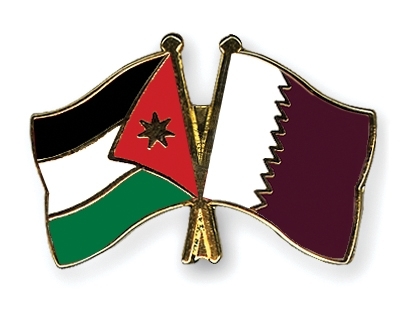Qatar has pledged to pay its $1.25 billion contribution to the Gulf fund to Jordan soon, a senior official said. The fund was allocated by the Gulf Cooperation Council (GCC) during last year's summit to support development projects in the Kingdom. Saudi Arabia, the UAE, Kuwait and Qatar decided to extend $5 billion over a five-year period to support development schemes in Jordan. Each GCC nation will pay $1.25 billion.
"Qatar has shown interest in supporting projects in the field of energy, health and transport," said Minister of Planning and International Cooperation Jafar Hassan, who paid a recent visit to Qatar.
On the sidelines of the opening of the second meeting of the Arab Planning Institute's (API) board of trustees, he noted that the Qatari side will support "projects of priority" to Jordan and those listed in the state budget.
"Among projects Qatar is keen to support is the gas storage terminal scheme," Hassan highlighted, adding that most of these projects will be funded through grants that enable the public sector, including local and foreign investors, to invest in these ventures.
Hassan announced earlier that a meeting will be held soon for senior GCC officials this month to endorse an action plan for funding the projects and agree on a mechanism to fund projects implemented in Jordan.
The minister also indicated that the government has prepared a list of priority projects, which was endorsed by the Cabinet lately.
Priority development projects listed on the 2012 budget are worth around JD400 million, he said, adding that more development ventures will be listed in the upcoming budgets, including renewable energy, health and education.
Addressing the API meeting, Hassan said the aftermath of the global financial crisis requires developing programs to improve democracy and good governance.
He added that these mechanisms should engage society in formulating its economic and political future to ensure political security.
He pointed out that the state of political and economic insecurity in the region is caused by challenges posed by unemployment and poverty, in addition to the lack of food security and energy resources in light of the growing population.
Stressing the importance of the role played by the private sector in the development process, Hassan said the concept of economic growth should be extended to include citizens' quality of life and ensure that development gains are justly distributed.
Meanwhile, Kuwaiti Minister of Public Works and Minister of State for Planning and Development Affairs Fadhel Safar Ali Safar said the API 2012/13 plan, which was discussed in a closing session, reflects an "understanding of the development challenges and risks facing the Arab world, which we should learn from".
"The first periodical report on development in the Arab world will be published this year [2012/13]. The board has decided to issue this report as an alternative to the Arab competitiveness report"," Safar, who is also chairman of the API board, highlighted.
The API is a non-profit regional organization whose primary mission is to advance economic and social development in Arab countries through training, research, consultancy, expert exchange and publications.
Jordan Times
10 June

























































